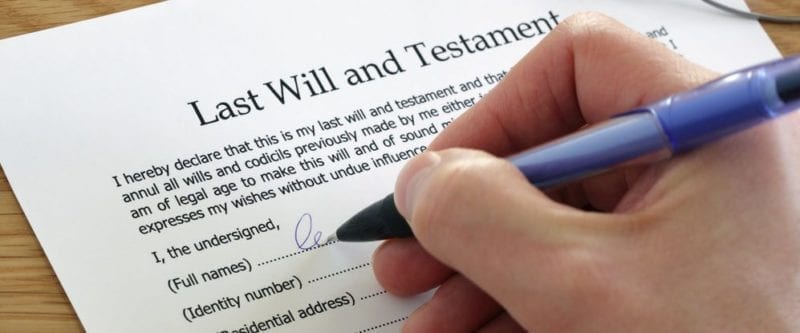Making a Valid Last Will and Testament in North Carolina

Making a Last Will and Testament is the key to preparing an estate plan. While the law does not require anyone to make a will, if you do not have one, then upon your death your property will be distributed as provided by state law. A will allows you to exercise control over the disposition of your property.
Any person over the age of 18 who is of “sound mind” can make a will at any time. Most wills are type-written and signed by the testator—the person making the will—in the presence of at least two witnesses. If for some reason the testator is physically unable to sign the will, he or she may direct someone else present to sign on his or her behalf.
Witnesses to NC Will
The witnesses do not have to read the will or know its contents. The law only requires that the testator declare in their presence that he or she intends to sign (or has signed) the document as a Last Will and Testament. The witnesses can generally be anyone, preferably someone who does not have an interest in the testator’s estate. However, North Carolina law does not automatically invalidate a witness who may be a beneficiary of the will.
Self-Proving a Will
A valid will does not require any type of seal or notarization. However, the law does allow the testator and witnesses to execute a notarized affidavit at the same time the will is signed, attesting to the fact the will was in fact signed by the testator in the witnesses’ presence. This makes the will “self-proving,” so that when it is filed after the testator’s death, the probate court does not have to make a separate inquiry to determine if the signatures of the testator and witnesses were valid. The affidavit has the same legal force as if the parties testified in court under oath.
Holographic vs. Nuncaptive Wills
North Carolina also recognizes two alternate forms of wills, known as holographic and nuncupative wills. A holographic will is handwritten, not typed, and must be entirely in the testator’s handwriting. Holographic wills are valid without witnesses, but the testator must still sign it. While witnesses are not required, it is still good practice to have witnesses and to sign in front of a notary.
A nuncupative will is an oral will made in the presence of at least two witnesses. Most US states do not recognize nuncupative wills, but North Carolina does if the testator is dying from his or her “last sickness or in imminent peril” and in fact dies as a result of that sickness or peril. North Carolina only permits nuncupative wills for the disposition of personal property. Real estate can only be disposed of by a written or holographic will.
Updating Your Will
You should update your will after marriage, divorce, or birth of a child. Adopting a child, even an adult child can impact your will.

